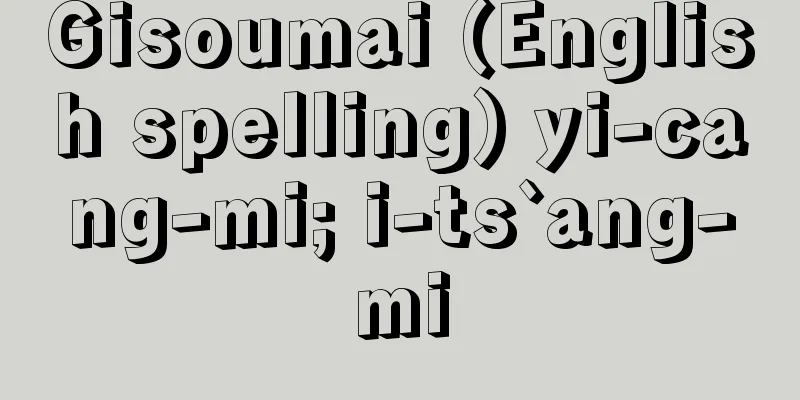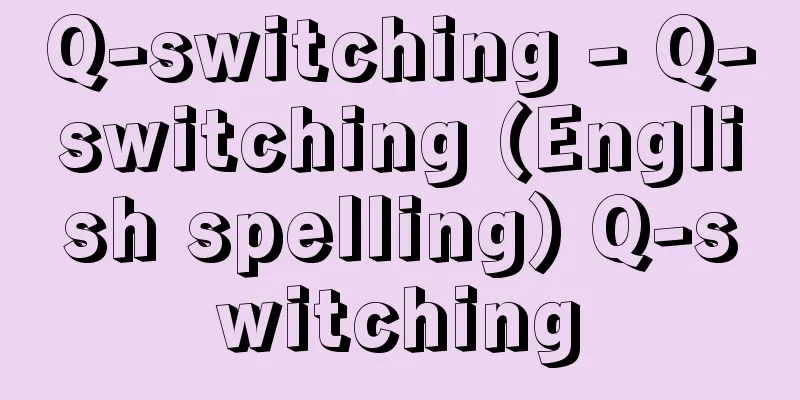Gisoumai (English spelling) yi-cang-mi; i-ts`ang-mi

|
In China, storehouses that store grain in peacetime in preparation for poor harvests are called gikura, and the grain itself is called gikuramai. They began in the Sui and Tang dynasties, and were used to prepare for disasters by accumulating land taxes levied on farmers. In the Ming and Qing dynasties, they were run by donations from the wealthy. Source: Encyclopaedia Britannica Concise Encyclopedia About Encyclopaedia Britannica Concise Encyclopedia Information |
|
中国で凶作にそなえて平時より穀物をたくわえておく倉を義倉,穀物を義倉米という。隋,唐に始り,農民に課する地税を蓄積し災害にそなえた。明,清では富裕な層の寄付による運営がみられる。
出典 ブリタニカ国際大百科事典 小項目事典ブリタニカ国際大百科事典 小項目事典について 情報 |
<<: Crime of using, delivering, and importing counterfeit securities
Recommend
Reserve - Tsumitatekin (English)
In accounting, this refers to the retained earnin...
Dwarf sperm whale
...A general term for mammals belonging to the ge...
The political upheaval of Meiji 14
An incident in which Councillor Okuma Shigenobu an...
Fenshui (English spelling)
The second largest tributary of the Yellow River, ...
Naminoue Shrine
Located in Wakasa, Naha City, Okinawa Prefecture....
Takasugi Shinsaku
He was a central figure in the anti-shogunate fac...
Asaka Canal - Asaka Canal
This canal draws water from Lake Inawashiro in cen...
Crucifixion - Crucifixion
A punishment in which a criminal is tied to a pil...
classification act
...Based on this job description, all government ...
Chianti - Chianti
<br /> Chianti. ⇒Chianti Source: Kodansha Dr...
《Kikaigashima》
...The name of a Noh piece. The Kita school calls...
Silver egg - Gin no Tamago
...Because it was a rather difficult dance, the p...
Carpobrotus
…There are more than 2,000 species, making them a...
Ezukushi - Ezukushi
A booklet with a set theme and a collection of pic...
Struve, GOHvon (English spelling) StruveGOHvon
...The following six people are famous as astrono...









